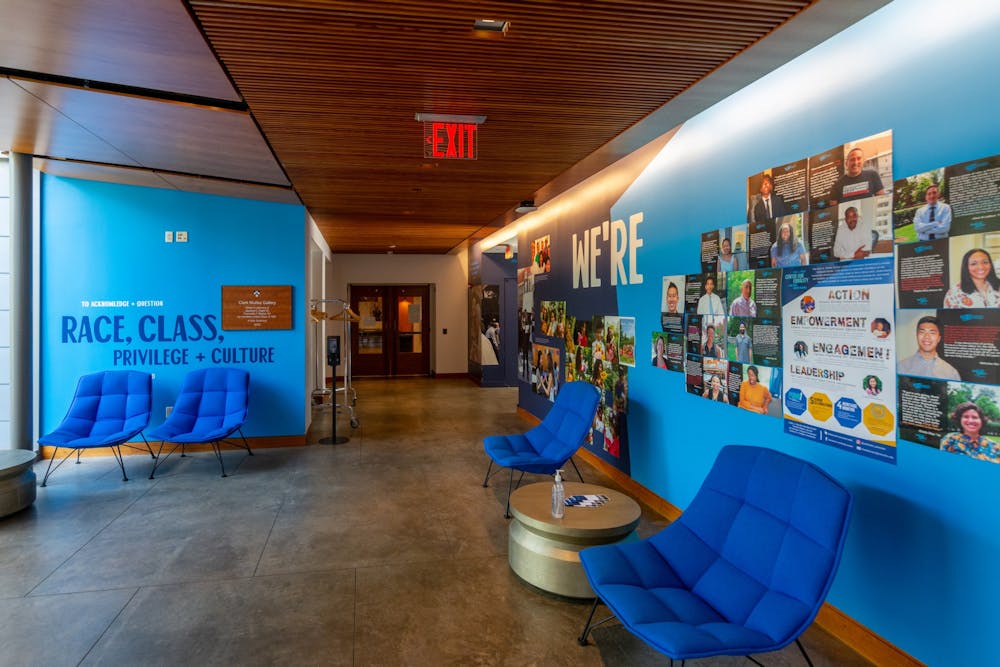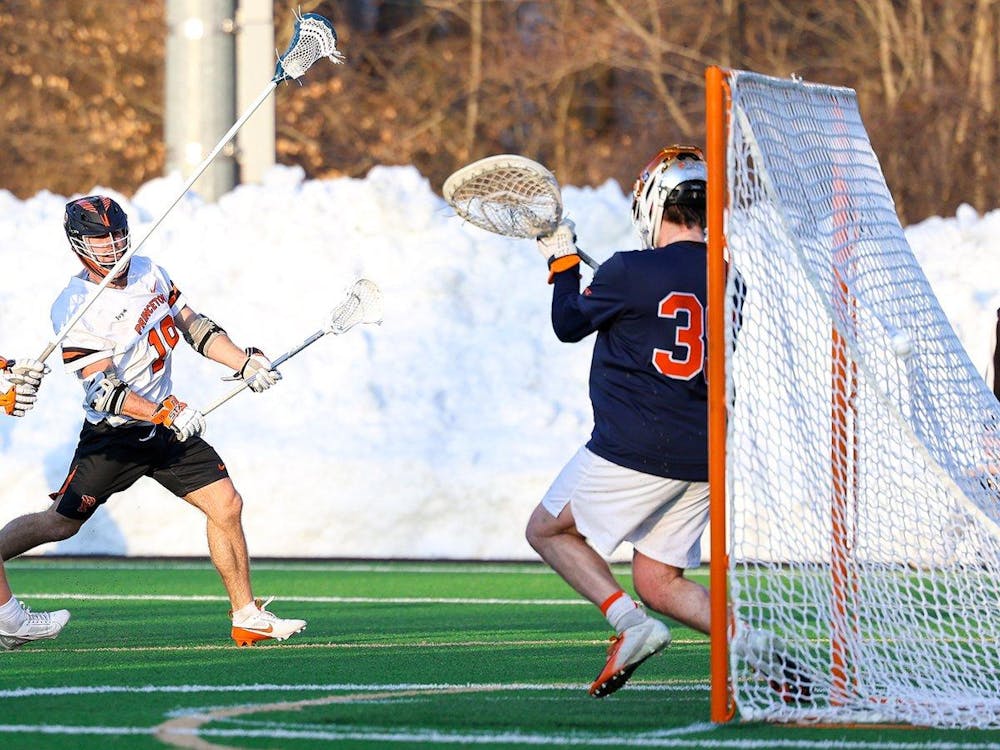“Affirmative action, for many of us, is what we would have considered at one point or another to be a huge facet in our Princeton experience,” shared the executive and artistic team of Más Flow, Princeton’s Latin dance company, in a statement to The Daily Princetonian.
“We are not just a dance company, but also a family with most of us having an essential part of our identity shared. We will continue to support not just our members but the wider Latine community,” the statement continued.
In late June, the Supreme Court stuck down affirmative action, essentially eliminating the consideration of race in college admissions processes. In the aftermath of the decisions, some experts have said that they expect the number of Black and Latine students at elite universities to decline. This may have a significant impact on student groups on campus, like Más Flow, that are centered around a racial or ethnic minority identity.
Students from various racial and ethnic minority communities across campus have expressed frustration with the decision’s potential impact on the campus experience. Representatives from Black student organizations from all eight Ivy League schools even released a joint statement condemning the decision.
Sabrina Nicacio ’25, who is the president of Princeton’s Black Arts Company (BAC) and also involved in the National Society of Black Engineers, Dorobucci, and the Black Arts Collective, emphasized in an interview with the ‘Prince’ that extracurriculars are essential to the Black community on campus.
“Due to the relatively small Black population on campus — Black students comprise eight percent of the undergraduate population — many Black students feel pressure to balance multiple extracurriculars,” she said, just to ensure the groups have enough members to continue functioning.
Nicacio said this dynamic makes her concerned that “Princeton will become a lonelier place for Black students, especially the ones from underprivileged backgrounds,” following the elimination of race-based affirmative action.
Despite these uncertainties, students are hopeful about the future of these affinity groups and the role they will play on campus.

Justin Smallwood ’26, who serves as the BAC technology chair, told the ‘Prince’ that “the BAC community is very strong and will continue to express and share Black culture through hip hop, regardless of the lack of representation that this decision creates.”
Kriti Garg ’26, a student intern at the Carl A. Fields Center for Equality and Cultural Understanding (CAF), said that the Supreme Court decision has made the CAF even more important, and that “it will be important for the Center to be a better-known resource on campus so that students know that they are supported and to preserve cultural understanding.”
Garg is a staff Audience creator for the ‘Prince’.
The Princeton Latin American Student Association (PLASA) is already planning on continuing to collaborate with the CAF for community events, according to PLASA community events chair Laura Sandoval Vergara ’25. She said that PLASA “will take this as an opportunity to regroup and see how [they] can best support [their] fellow students and uplift [their] community proudly.”

Within Princeton’s Generational African American Students Association (GAASA), work has already begun to strengthen the organization in light of the ruling. GAASA president Christopher Butcher ’25 stated in an interview that the group is already “in the process of coordinating collective actions with our peer organizations at Harvard, Yale, Penn, and Cornell.”
GAASA was formed last fall to “cultivate a sense of community among African-American students on Princeton’s campus,” according to its mission statement. In an op-ed last December, Butcher drew attention to a dichotomy on Princeton’s campus between Black children of immigrants and descendants of enslaved Africans in the United States.
“When GAASA was founded, many people questioned why our group was necessary,“ the group wrote on June 29 in a social media statement addressing affirmative action. “At this moment, the answer is more apparent. The law and politics are inflicted on our community in ways that foster intense feelings of pain and disillusionment.”
“Princeton's Generational African American Students Association is deeply disappointed with this decision as we are profoundly aware of the ways in which the afterlife of slavery continues to imperil African-Americans today,“ they wrote. “400 years of slavery, 73 years of Jim Crow, and perpetual racial discrimination has perpetually circumscribed Black life in every possible sector — including education.”
Butcher’s December op-ed cites one alum’s estimate that each Princeton class has about 12 Generational African Americans.
“Striking down affirmative action poses an extreme risk to our community — possibly to the point of absolution,“ reads GAASA’s statement.
Student groups have in the past been central to the fight for affirmative action. In 1998, as the Supreme Court considered affirmative action, Princeton’s Black Student Union (BSU) participated in a march at the capital to support affirmative action. Similarly, students marched for affirmative action alongside then-Princeton University President Harold T. Shapiro.
While opponents of affirmative action have highlighted the effect on Asian students, one prominent Asian student group on campus has also opposed the decision. In the lead-up to Supreme Court oral arguments last fall, Princeton’s Asian American Students Association (AASA) was at the forefront of campus circulation of a multi-school petition entitled “Students in Support of Race-Conscious Admissions.” Hannah Lee ’24 told the ‘Prince’ in November that AASA had planned to join mass student protests in front of the Supreme Court but were denied funding.
AASA also recently released a statement on social media condemning the affirmative action overturning, writing that the decision “presents an irreversible loss to all students — not just aspiring Black and Latino students who will now have to compete against those that directly benefit from continuing legacy admission and/or have financial resources to competitively position themselves in the admissions process. It will further disadvantage the most vulnerable and historically underrepresented populations in our country, including Asian Americans, many of whom are from first-generation, low-income households.”
Currently, as students plan for changes within their communities, some also hope for action by the University administration in response to the Supreme Court decision.
Regarding admissions, Nicacio said she hopes “that the Princeton admissions committee will find creative ways to continue increasing the Black population on campus despite this giant step backward in equity and equality.”
Princeton BSU president Jordan Johnson ’24 noted, “no one has benefited more from affirmative action than the schools that get to incorporate Black thought and some of the best Black thinkers into their communities.”
Johnson stressed that changes on the part of universities like Princeton must extend further than admissions alone.
“This doesn't just mean finding new ways to achieve diversity through admissions,” he said. “It means that the administration will have to make a real commitment to these existing communities on campus. While I appreciate the sentiments from the school, there is a lot of work to be done in order to ensure that the impacted communities really thrive here.”
Julian Hartman-Sigall is an assistant News editor at the ‘Prince.’
Jeannie Kim is a staff News writer for the ‘Prince.’
Please send any corrections to corrections[at]dailyprincetonian.com.








